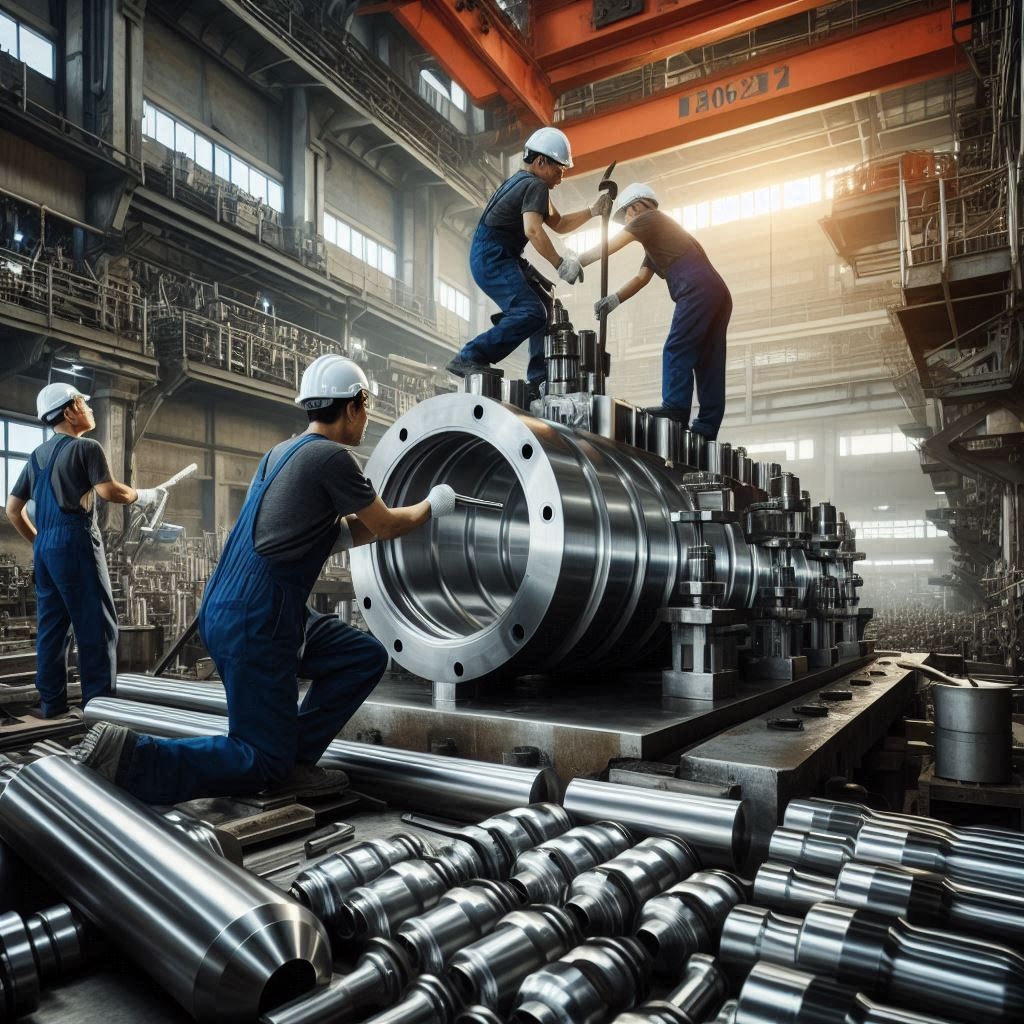Stainless steel (SS) forgings contribute importance within modern industrial systems by exhibiting strength, durability and resistance to harsh environments. Forged SS is the backbone of many industrial sectors which include aerospace, automotive, oil & gas, chemical processing and equipment manufacturing. Each assumes some level of performance that emphasizes reliability and long service life. Forging provides substantial benefits to the mechanical properties of stainless steel to manufacture components with increased structural integrity, dimensional precision and wear/corrosion resistance levels.
What are ss forging parts?
SS forging parts are precision manufactured parts made by subjecting stainless steel to extreme compressive forces while it is heated, very much to form the part to the required shape, while simultaneously dramatically improvement the overall integrity of the part. The detailed process of forging metal alters the internal grain structure, removes voids and defects, maximizes metallurgy, and consistently improves mechanical properties for stainless steel, achieving the desired effect even further. Therefore, forged stainless steel products are considerably stronger, more elastic, and more reliable than cast products or those that are machined. Forged stainless steel products also provide a better strength-to-weight ratio, are more corrosion resistant inherently, and provide a better surface condition than their cast and machined counterparts. All these properties confer tremendous benefits in applications under extreme high stress, high temperature, and/or high pressure.
Examples of forged stainless steel products include flanges, fittings and valves for use in piping and process systems. Likely related forged parts are gears, couplings, and shafts that are used mechanical assemblies. Most industrial applications for pumps and compressors usually require forged stainless steel components. Other examples include but are not limited to fasteners, rings, bolts, discs, and heavy-duty blocks amplified for high-performance equipment.
Advantages of Choosing Forged Stainless Steel Components
There are numerous performance and reliability benefits to selecting forged stainless steel components instead of cast or fabricated stainless components, making them desirable in demanding industrial service applications. The process of forging develops and realigns the flow of the metal grain which improves mechanical strength, toughness and load bearing capability. Forged stainless steel retains the corrosion resistant benefits of stainless steel, and may be further improved through forging, to facilitate use in corrosive (or moisture laden), aggressive environments.
Forged components provide enhanced wear and fatigue resistance while sustaining structural integrity under high stress caused by repeated loading or abrasive conditions, to provide greater service life. In addition, forged components use precision forging techniques that can provide superior dimensional accuracy and smooth surface finishes with minimal post-processing. When these benefits are combined with durability and structural integrity offered by forged stainless steel components the costs of maintenance are reduced, and the lifespan of critical components is increased.
Applications Across Key Industries
Stainless steel forging parts are essential to many industries with need for strength, accuracy, and durability because they demonstrate versatility and durability. In the aerospace industry, high-strength stainless steel forged products are used in engine parts, landing gear and hydraulic operations where reliability must always be ensured in extreme operating conditions. High-pressure valves, flanges and fittings in pipelines and facilities in the oil & gas and petrochemical industries rely on forgings when temperature and environmental conditions may be corrosive.
In the automotive and transportation industries, forged shafts, gears, and suspension parts are used for their mechanical strength to promote safety, performance, and durability. Forged turbine shafts, rotor components, and heat exchanger parts are highly reliant on forgings in the power generation industry due to their thermal stability and longevity. Food, beverage, and pharmaceutical processing also requires forgings in sub-components of processing and manufacturing to maintain hygiene but also resistance to corrosion and chemical exposure.
Key Factors in Choosing a SS Forging Manufacturer
Choosing the correct stainless steel manufacturing company will optimize the performance, durability, and reliability of your stainless steel parts. A manufacturing company with metallurgical experience and technical expertise can also optimize the forging process and develop the manufacturing methods while enhancing the strength, precision, and consistency of your parts.The supplier also has a wide variety to choose from in stainless steel grades such as 304, 316, 410, and duplex steels, then assuredly, they will offer you conversation around two or three individual solutions for your particular application. Along with customization capabilities to create a part exactly as you need it for functionality and compatibility, you will be provided with peace of mind that you are being provided parts that meet quality standards such as ISO, ASTM, and ASME, and/or possibly other standards, and that the supplier has rigorous quality control, and traceability documented. Lastly, if a supplier is able to provide full service from design and forging all the way to machining, heat treatment, and/or finishing, responsible through this multitasking operation and reducing lead times, this too can provide confidence and assurance in quality components that can be used right out of the box which also can drastically increase the customer experience, and improve the total value to your experience.
Conclusion
SS forging parts are used in industries that require strength, precision, and durability in challenging environments. The forging process will improve the structural integrity, mechanical performance, corrosion and wear resistance of stainless steel components. Forged stainless steel components provide a strong and cost-effective guarantee of reputation for reliable and predictable performance in demanding service applications found in aerospace engines, chemical processing plants, and heavy machinery with long service lives.
When seeking the manufacturer to forge the forged SS components, consider that choosing a reputable manufacturer can provide quality components, engineering support, and customization to meet the ongoing demands of today’s industrial applications.



